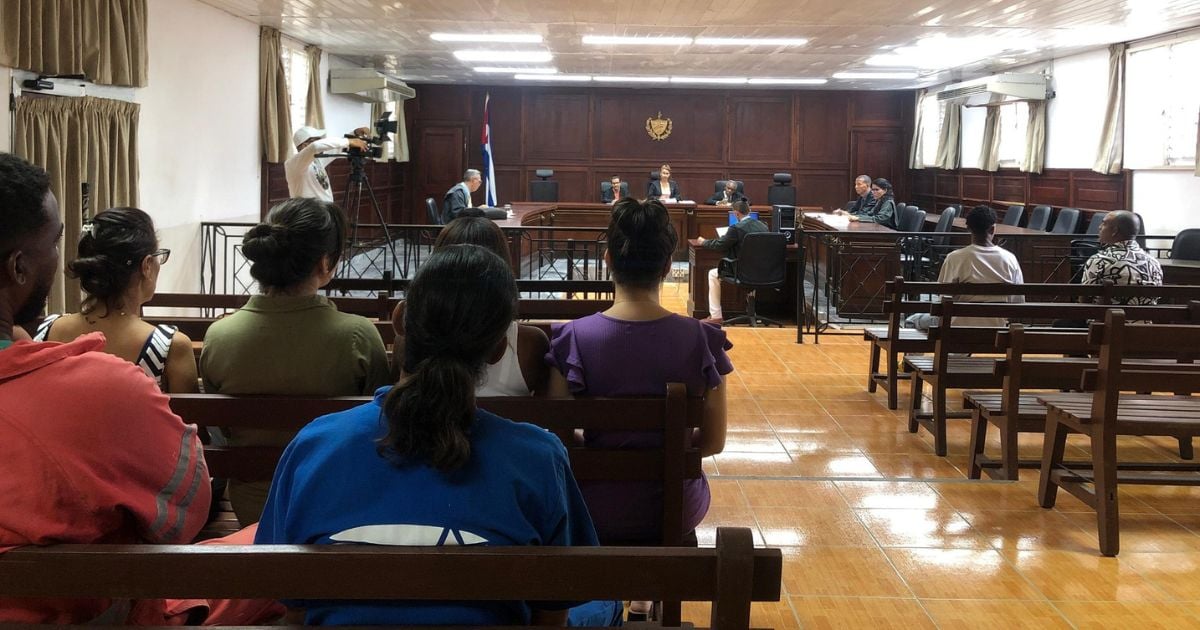The Municipal People's Court of Diez de Octubre recently held a criminal trial against two employees from the Ñico López refinery in Havana. These workers faced charges for failing to uphold their duty in protecting state-owned economic assets. According to a report by Canal Habana on their Facebook page, the accused individuals did not adhere to the established procedures for transferring fuel from a ship to storage tanks. This negligence resulted in a spill of 280,000 liters of B-90 gasoline.
The financial impact of this incident is significant, with losses estimated at over 5 million Cuban pesos. This figure is particularly daunting given Cuba's ongoing severe economic crisis. Despite the serious nature of the charges, authorities have not disclosed the identities of the defendants or the penalties imposed, stating only that the matter is still under judicial review.
The official statement, lacking details, promised more information in future broadcasts of Habana Noticiario. It failed to address potential oversight failures or identify additional parties responsible for the incident. Comments on social media highlighted that responsibility for such a large-scale event should not fall solely on the two prosecuted workers. Many suggested that supervisors, administrative staff, and managers should also be held accountable.
Some commentators pointed out that high-ranking officials, like the ousted former Minister of Economy, Alejandro Gil, have been involved in more severe incidents without facing similar levels of accountability. This recent trial coincides with Cuba's National Exercise for Crime Prevention and Confrontation, which began on Monday. During this campaign, the Cuban government pledged strict punishments and exemplary trials for serious offenses within state institutions.
In this context, Cuban leader Miguel Díaz-Canel has called for "firm" responses to crimes in state-run centers, such as theft, vandalism, and corruption. As part of this crackdown, a young Cuban was sentenced to seven years in prison for publicly criticizing Díaz-Canel, a verdict that sparked concern among human rights activists who see it as political repression disguised as criminal justice.
Additionally, news broke on Wednesday about the former mayor of Puerto Padre in Las Tunas, who received a seven-year prison sentence for crimes related to administrative corruption. Official media outlets presented this judgment as proof of the judicial system's commitment to "socialist legality," omitting any mention of systemic or structural accountability.
Key Questions on the Cuban Judicial System and Recent Trials
What charges were the Ñico López refinery workers facing?
The workers were charged with failing to uphold their duty to protect state-owned economic assets, resulting in a significant gasoline spill.
How significant are the economic losses from the gasoline spill?
The spill caused economic losses estimated at over 5 million Cuban pesos, a considerable amount given the country's economic difficulties.
How has the Cuban government responded to crimes within state institutions?
The Cuban government has pledged severe punishments and exemplary trials for serious offenses within state institutions as part of a national campaign against crime.
What recent verdicts have raised concerns among human rights activists?
A young Cuban was sentenced to seven years in prison for criticizing Díaz-Canel, which has been viewed by activists as political repression under the guise of legal proceedings.
